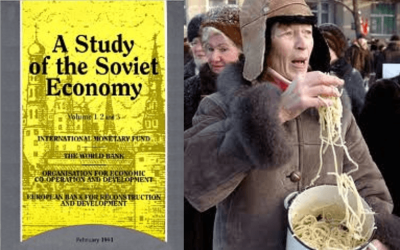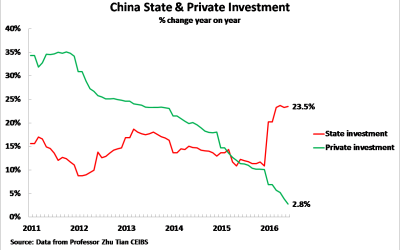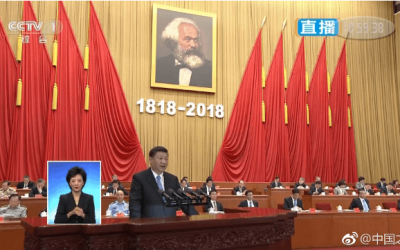On 11-12 July NATO is holding its summit in Vilnius. Top of the agenda is NATO expansion: Sweden joining the alliance, NATO membership for Ukraine, the proposal to set up a liaison office in Tokyo. This expansion is a deeply dangerous policy, with globally destabilising consequences, which must be strongly opposed.
As US experts predicted in advance NATO membership destabilised Europe
Reality has already shown that NATOs eastward expansion has destabilised Europe, as was correctly warned against in advance by the great majority of U.S. experts on Russia. As the Brooking’s Institute admitted: “The dean of America’s Russia experts, George F. Kennan, had called the expansion of NATO into Central Europe ‘the most fateful error of American policy in the entire post-Cold War era.’ Kennan, the architect of America’s post-World War II strategy of containment of the Soviet Union, believed, as did most other Russia experts in the United States, that expanding NATO would damage beyond repair U.S. efforts to transform Russia from enemy to partner.”
These warnings were entirely vindicated. The end of the Warsaw Pact in 1991 should have led to military blocs being dissolved in Europe, helping usher in a period of peaceful cooperation and mutually beneficial economic development. Such avoidance of blocs, and deliberate steps to overcome antagonisms, is the highly successful path which has been taken by East Asia – which had suffered in Korea and Vietnam the two most devastating hot wars involving major powers after 1945. The successful outcome of this is in sharp contrast to the consequences of the path which was taken by NATO expansion.
ASEAN and success in East Asia
East Asia, with ASEAN playing a key role, deliberately set about lowering tensions via inclusiveness – the opposite of the path taken by NATO. As Kishore Mahbubani, former President of the United Nations Security Council, noted: “While ASEAN welcomed Vietnam, an erstwhile adversary for many of its members, Europe consistently excluded its erstwhile adversary, Russia, from significant binding regional arrangements. Mikhail Gorbachev’s proposal of ‘a common house for Europe’ was effectively rebuffed.
“ASEAN has been successful precisely because it has aimed to be as inclusive as possible. When it launched the ASEAN Regional Forum in 1994, one of the main goals was to bring together traditional adversaries such as India and Pakistan, North and South Korea, and China and Japan….
“Now consider NATO’s enlargement. While US and European leaders swear they never promised Russia that the alliance would not continue to grow, Russian leaders claim otherwise. Future historians may resolve this debate, but we can still consider what might have been. In the late 1990s, Western foreign-policy mandarins like George F. Kennan warned that NATO’s enlargement into Central and Eastern Europe was a ‘fateful error’… the assumption that nothing would happen as a result of NATO’s enlargement is either politically naive or disingenuous.”
The Ukraine war and the disaster of NATO expansion
Indeed, the attempt to expand NATO into Ukraine has now culminated in the largest war in Europe since 1945 with economic consequences, in heightened inflation and other effects, that have severely negatively affected the entire world.
It is widely reported that the most important NATO states, the U.S. and Germany, are opposing the provocative path proposed by Poland and some other East European states of attempting to rapidly bring Ukraine into NATO. The Financial Times concluded: “Washington and Berlin have backed a form of words for the [NATO] summit’s concluding statement that does not fully endorse a ‘pathway’ to NATO membership, let alone invite Kyiv to join once the war is over — as demanded by Ukraine’s staunchest supporters in eastern Europe. Other members of the alliance were caught off-guard by the ‘conservative’ US and German stance… On Sunday US president Joe Biden doused Kyiv’s hopes of a breakthrough on membership, saying he did not think Ukraine was ready.
“’I think we have to lay out a rational path for Ukraine to be able to qualify to get into Nato,’ Biden told CNN. It was ‘premature’ to ‘call for a vote . . . now’, he added ‘because there’s other qualifications that need to be met, including democratisation.’”
This issue is in reality far from simply tactical. The fundamental reason the U.S. and Germany are hesitating is that they realise that the proposal to bring Ukraine into NATO is to cross the military and political red lines of a nuclear armed state – Russia. In the same way that in the 1962 Cuban missile crisis the US made clear that it would not accept Soviet missiles being in Cuba, for military reasons due to Cuba’s proximity to the United States, Russia has made clear that it will not accept Ukraine being in NATO – the distance from Kyiv to Moscow is only half the distance from Havana to Washington.
Pressing ahead with Ukraine’s membership of NATO is already the basis of the largest conventional war in Europe since 1945. The intention to push ahead with a nuclear armed NATO confronting a nuclear armed Russia over Ukraine membership is to risk something still more dangerous.
To preserve peace in Europe it is therefore vital that the proposal to bring Ukraine into NATO is abandoned. Removing the proposal that Ukraine e brought into NATO is also one of the key conditions from bringing to an end the Ukraine war itself.
Expanding NATO to Asis is like bringing in the plague
The proposal to establish a NATO “liaison office” in Tokyo, reportedly to: “use it as a hub for co-operation with Australia, Japan, New Zealand and South Korea” would be a similarly dangerous initiative.
French President Emmanuel Macron has rightly opposed this stating: “’If . . . we push Nato to enlarge the spectrum and the geography, we will make a big mistake.’” Given that opening such an office would require unanimous decision by NATO France can therefore veto any such proposal, and it should do so.
Former Australian Prime Minister Paul Keating was even more accurate and blunt: “Mr Keating issued a statement that slammed NATO’s planned expansion into Asia, warning it could bring the ‘militarism of Europe’ into the region. ‘Exporting that malicious poison to Asia would be akin to Asia welcoming the plague on itself,’ Mr Keating wrote.”
An expansion by NATO towards East Asia would go against the entire path which has been successful in the region. Developing countries in East Asia, particularly in ASEAN, have rightly avoided establishment of military alliances. They have also rightly accepted political diversity – the region contains the widest range of political regimes ranging from a monarchy in Thailand, to socialist states in China and Vietnam, and includes numerous different types of republics. Instead of military blocs, the region has concentrated on peaceful economic development and cooperation between numerous different economic and political regimes. The individual countries in the region have followed a path of non-alignment with any other states.
The result of this policy is that East Asia is today the most rapidly growing economic region in the world which has exited from the traumatic era of wars to establish more than 40 years of peace. The simultaneous success in economic development and in peace is in the sharpest possible contrast to the combination of economic problems and war which has struck Europe with NATO expansion.
Diversion of resources from the population to military spending in Europe
Simultaneously, within NATO member states, the proposal to divert resources to increased military spending, at a time when their populations are already suffering falling living standards, is the exact opposite of the direction which needs to be taken. The dangerous consequences of this are already developing in Europe.
Germany’s new budget for 2024 proposes savage overall cuts in expenditure of 6.4% compared to this year, which will inevitably worsen social conditions in he country. But in contrast military spending will increase by 3.4%. Therefore, in practice in Germany, spending is being diverted from social protection to military uses. Similarly In February Denmark abolished a public holiday, which has been observed since the 17th century, in order to finance increased military spending – lengthening the working year to finance the military. These are examples of a damaging trend which is spreading in Europe resulting from NATO policies.
The attempt to expand NATO into new regions of the world would, therefore, spread the damage which its path is creating globally. A path focussed on peaceful economic development, acceptance of political diversity, and non-alignment, that has been so successful in East Asia, not that of NATO, should be the one which is chosen. Most immediately that means opposing all moves to expand NATO.
This article originally appeared in Chinese at Guancha.cn.






